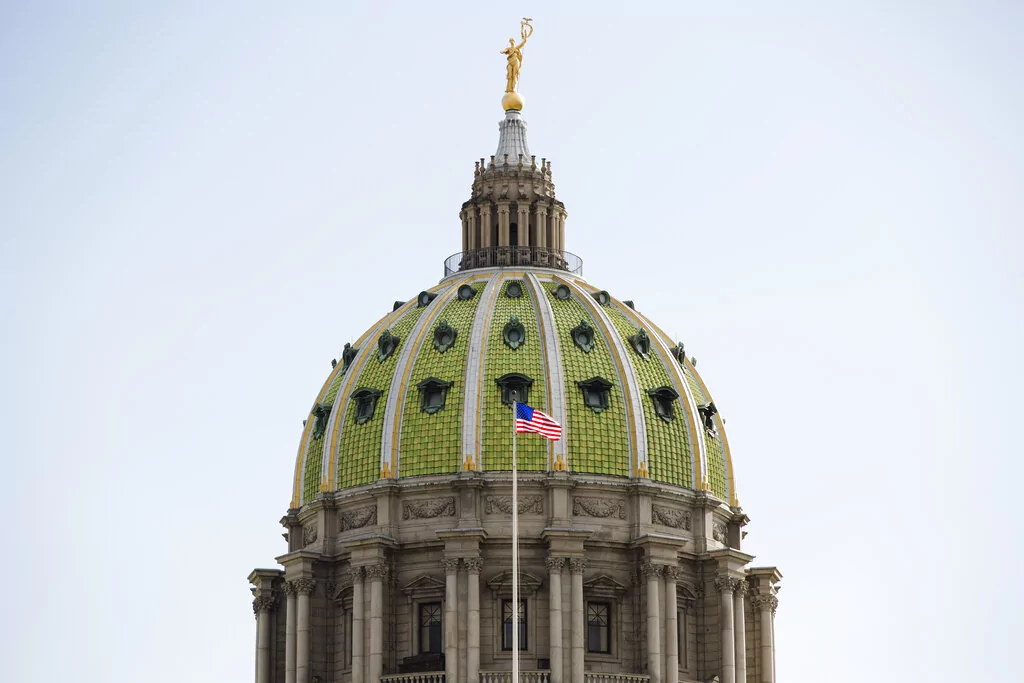

(The Center Square) – Pennsylvania’s financial credit rating just rose again, meaning the government will get better interest rates when borrowing money, just like taxpayers.
And, theoretically, that means more money left to spend on schools, roads and public services. It’s all well and good for lawmakers, as long as credit is given where credit is due.
For Democratic Gov. Josh Shapiro, that means acknowledging his efforts to shepherd the divided Legislature through politically charged impasses. According to his administration, that’s why Moody’s Ratings and Fitch Ratings both boosted the state’s credit scores over the last 11 months.
And those upgrades meant better bond refinancing rates, such as one the state secured in December. At the time, it was estimated the transaction would save taxpayers between $6 million and $12 million. A similar bond sale is slated for later this month.
“Pennsylvania is clearly on a strong path toward continued economic and financial success,” Secretary of the Budget Uri Monson said on Oct. 8. “Our responsible investments and sound management are keeping the Commonwealth on solid fiscal footing while providing critical support to Pennsylvanians.”
Revisionist history according to at least one Senate lawmaker who says Republican leadership’s savings demands have so far kept the state from falling off a proverbial “fiscal cliff.”
“The fiscally responsible manner in which the Senate Republican caucus has held the line against excessive executive branch spending is precisely what Moody’s identified as the actual catalyst for Pennsylvania’s credit rating upgrade,” said Sen. Cris Dush, R-Brookville. “This is in sharp contrast to the governor’s unsustainable spending demands and his frequent, fiscally irresponsible attempts to deplete the Commonwealth’s now fiscally stable and growing Rainy Day Fund.”
In July, Shapiro signed a $47.6 billion budget plan that spends an extra $1 billion on education, implements tax and regulatory reforms for businesses, and infuses $80 million into mass transit systems that continue to hemorrhage money postpandemic.
Republicans, who control the Senate, negotiated the deal with the Democratic-led House and governor’s administration. In its aftermath, they said it pared down a more ambitious “rainbows and unicorns” plan proposed in February and will grow state tax revenues to support $2.7 billion more in government spending overall.
The new appropriations, however, have been forecast to reduce the state’s surplus account from $8.1 billion to $3.5 billion in less than two years. The spending pace means lawmakers worry they may be forced to raid the state’s $7 billion emergency savings account in the next two years.
It’s not far from the minds of Moody’s credit advisors, either, who noted that “ineffective governance,” an underperforming economy and the ever-present structural imbalance – like the one Pennsylvania’s carried for years – could lead to a future downgrade.
Sen. Scott Martin, R-Strasburg, although happy about the upgrade, pointed to the state’s continued need for cautionary spending; Moody’s labeled Pennsylvania’s financial outlook as stable, rather than positive.
“We have worked very hard to achieve these credit rating upgrades that save taxpayers huge amounts of money, and we owe it to taxpayers to continue to manage their money wisely,” he said.
The newest Moody’s rating of Aa2 is the highest it’s been after holding steady at Aa3 for the last decade. New York, Ohio and Virginia have maintained higher credit ratings during the same time period. New Jersey has consistently ranked below Pennsylvania since 2014.







